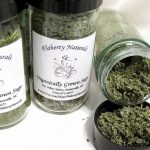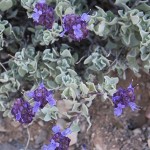A memory boost from sage
Brain researchers are investigating Sage, yes that must-have seasoning for your turkey stuffing at the holidays, as a possible treatment for memory loss.
Traditional Uses
Cooks and culinary chefs’ through-out history used sage as an earthy Mediterranean herb seasoning for poultry and meats. 
Herbalists long ago discovered its medicinal qualities for gastrointestinal disorders, fever, sore throat, high blood sugar, premenstrual cramps, excessive perspiration and bacterial mouth infections.
Landscapers now use it as an attractive, minimal care evergreen ornamental subshrub with delicate pink to purple blossoms.
And, if you need to clear the air of negativity smudging of sage is recommended.
Properties of Sage
- an antioxidant
- anti-inflammatory
- anti-hypertensive
- anti-bacterial.
Memory
Brain researchers are also intrigued by the use of sage extracts in teas and tinctures going back centuries for memory problems. As early as 1597 the herbalist John Gerard wrote
“It is singularly good for the head and brain and quickeneth the nerves and memory”, and Nicholas Culpeper, whose 1652 text says “It also heals the memory, warming and quickening the senses“.
In a 2003 study published in the academic journal Pharmacology, Biochemistry and Behaviour, sage oil capsules were given to a group of young adults tested for word memory recall. Compared to a placebo of sunflower oil, those taking sage oil capsules showed a temporary memory boost.
A follow-up study in 2008 was completed with 22 men age 65 and older. Those men taking a sage extract of 333 mg. scored consistently highest in secondary memory with each subsequent cognitive test over a period of hours. The difference from the 2003 study, is that it measured the secondary memory of “… efficient stimulus processing and/or memory consolidation.”
While these are early and small studies, they are of interest for the memory decline occurring in Alzheimer’s disease. Sage is significant for its ability to inhibit the action of the enzyme acetylcholinesterase (AChE).
AChE acts to break down acetylcholine, a key brain neurotransmitter for the autonomic nervous systems, as well as, affecting quality of memory and attention. An increase in the inhibiting AChE has been found to accumulate in amyloid plaque, a feature of Alzheimer’s disease progression.
Alzheimer’s disease is diagnosed in women more than men, and it’s projected to reach epidemic level by trippingly worldwide by 2050. While early research is promising, more definitive sage research is needed.
In the meantime adding a cup of sage tea may be a healthy option for giving your memory and attention a temporary boost.
It’s recommended that you please consult with your healthcare provider and review you health status and medications before including the use of any sage product or sage derivative, as there can be toxicity issues if improperly used.
This information is solely for informational purposes. IT IS NOT INTENDED TO PROVIDE MEDICAL ADVICE.
Source list:
http://www.whfoods.com/genpage.php?tname=foodspice&dbid=76
http://www.vitaminstuff.com/herbs-sage.html
http://www.sciencedaily.com/releases/2003/09/030901091846.htm
http://www.ncbi.nlm.nih.gov/pubmed/18350281
http://www.webmd.com/balance/news/20030828/herb-sage-improves-memory
